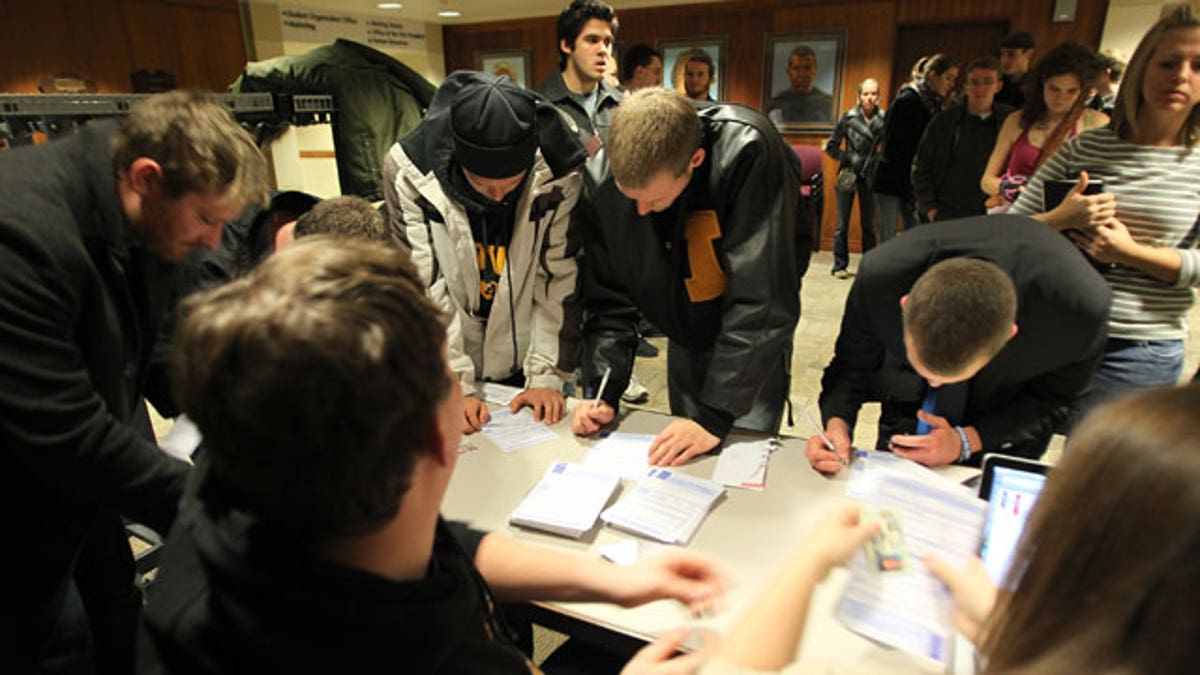
Jan. 3, 2012: Caucus voters fill out the same day voter registration paperwork so they can participate in the Republican presidential caucus at the Iowa Memorial Union on the University of Iowa Campus in Iowa City, Iowa. (AP)
WASHINGTON – The 2012 entrance poll of Iowa caucus-goers reveals an electorate whose composition closely resembles 2008 and split on what qualities are most important for the next Republican nominee.
CANDIDATE QUALITIES: Three in 10 who participated in the caucus said it was most important to choose a candidate who could defeat President Barack Obama in November, but one-quarter each thought it more important for the candidate to be a true conservative or have strong moral character. Experience -- an attribute that figured prominently in sparring between Mitt Romney, Newt Gingrich and Herman Cain before surges lifted Rick Santorum and Ron Paul -- was cited by 1 in 8.
SPEAKING OF SURGES: About half of Iowa caucus-goers said they made up their minds in the last few days, and about a third of them backed Santorum. Romney was second among this group with about a quarter of voters.
YOUNG VOTERS AND NEW PARTICIPANTS: The youngest voters backed the oldest candidate in the Iowa straw poll. Those under 30 broke heavily for Paul, with the 76-year-old Texas congressman also holding an advantage among those attending their first caucus.
TEA PARTY: Tea party backers made up about two-thirds of Iowa caucus-goers, and they gave Santorum a narrow advantage. The 1 in 10 voters who opposed the tea party favored Romney.
MINDING THE MONEY: Voters who called the economy the top issue backed Romney over his top competitors, while those most deeply concerned about the federal budget deficit favored Paul.
EVANGELICALS AND CONSERVATIVES: Two groups frequently cited as key to victory in Iowa were assets to Santorum's late surge. He held leads among both groups. As in 2008, evangelicals made up about 6 in 10 caucus-goers and about half described themselves as "very conservative."
INDEPENDENTS: They have grown as a share of the electorate from 2008 and now make up about a quarter of voters. Nearly half of independents said they favored Paul. Among those who consider themselves Republicans, Romney and Santorum ran about evenly.
The survey was conducted for The Associated Press and the television networks by Edison Research as voters arrived at 40 randomly selected caucus sites in Iowa. It involved interviews with 1,737 caucus-goers and had a margin of sampling error of plus or minus 4 percentage points.





















